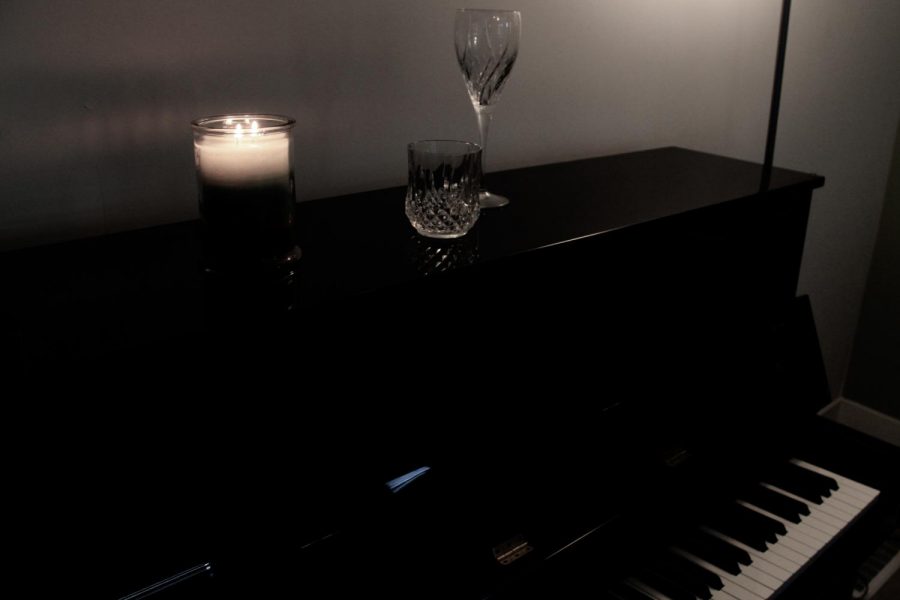In what seems to be a swanky, hole-in-the-wall lounge at the McKittrick Hotel, lit only by the candles on each table, a voice rises up from the shadows. With no pause, he launches into song, accompanied by voices that appear out of nowhere. Eventually, two women — one with an autoharp and the other with a cello — emerge along with a pianist and violinist. They begin to lament their life stories, which they consider to all be lies, in five-part harmony.
Dave Malloy gifted the world with the YouTube clip that features his original production of “Ghost Quartet” this week in order to bring some joy during these times of self-quarantining. “Ghost Quartet” is described not as a musical, not as a play with music, but as a musical song cycle about love, death and alcohol. The story’s fluid nature makes it next to impossible to narrow down solid plot points as all the characters seem to become one another. However, the goal of this experimental piece of theater is not to understand it, but to let it affect audiences. Instead of resisting the confusion, people should indulge in it, embrace it.
The piece begins with a woman (Brittain Ashford) who walks into a camera shop to hear about its grim and magical history: one sister who murders the other for pursuing her lover. Ashford sings “Starchild,” a beautifully sad ballad about having a ghostlike nature and wishing to transcend from that state of being. Soon after, another woman (Gelsey Bell) fingers a harp while reciting a monologue in a similar tone about being trapped in darkness.
Another element of the play is the ghost of Thelonious Monk, an American jazz pianist who worked mostly in improvisation. The two women gossip about how a pianist plays for the door — behind which he believes the ghost of Thelonious Monk resides. Each night the pianist plays for Monk, even though the keys cut his fingers because it is the last piano in the world. The beautiful music crescendos.
In “Ghost Quartet,” a man screams about the apocalypse while standing on train tracks as a train approaches. He is widely considered crazy, because the apocalypse may not exist. Why does he care? The act of seeing danger on the horizon is not what denotes his instability, but what does is him standing on the train tracks. In order to save everyone else from the apocalypse, he needs to save himself. He needs to step off the tracks.
Something about this paradox made me cognizant of the similar experience we are facing with COVID-19 today. Amidst all this quarantining, the only thing bringing us together is our mutual separation. Everyone is sitting at home watching Netflix, protecting themselves from danger and from contracting the virus. In order to save everyone, we need to save ourselves, just like the man on the train tracks. The possibility of wiping out the entire human race in the future, either by coronavirus or even by the apocalypse, can be frightening. Yet instead of keeping our eyes fixated on the horizon, on what’s to come, what we cannot entirely control, we need to try to stay in the present and focus on what we can do. What can we do on a microscopic level? What train can we jump away from?
The convoluted, dense nature of this show makes it easy for people to disengage with it completely. “Ghost Quartet” is not a casual watch; the audience is as much a part of the storytelling as the cast is. Threads that connect the story together are woven throughout, but they show themselves just as quickly as they slip away. The mentality that it takes to watch this musical and take something away from it is the same one that will get the world through today’s moment of isolation. Trust it. Wrestle with a moment; then let it go. When it’s all over, sit with it. We don’t just believe in things; we choose to believe in them.
Email Hope Cassandra at [email protected].






















































































































































